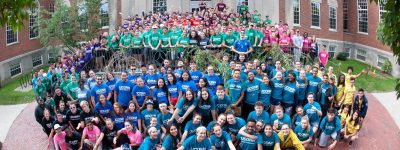 We Are Hiring! The Department of Chemical & Biomolecular Engineering invites applications for a non-tenure track position of Assistant Professor in Residence at the Storrs campus. This role offers a fantastic opportunity to make a meaningful impact by teaching in both undergraduate and graduate programs, as well as contributing to departmental initiatives.
We Are Hiring! The Department of Chemical & Biomolecular Engineering invites applications for a non-tenure track position of Assistant Professor in Residence at the Storrs campus. This role offers a fantastic opportunity to make a meaningful impact by teaching in both undergraduate and graduate programs, as well as contributing to departmental initiatives.
We are looking for candidates with:
- Established record of accomplishment in teaching
- Expertise in core courses such as thermodynamics, kinetics, and/or transport phenomena
- Familiarity with computation and theory within chemical engineering
- A strong commitment to professional service and outreach
If you’re passionate about fostering a dynamic, inclusive learning environment and advancing chemical engineering education, we encourage you to apply!
To learn more and apply, visit: https://careers.pageuppeople.com/967/cw/en-us/job/498708/assistant-professor-in-residence
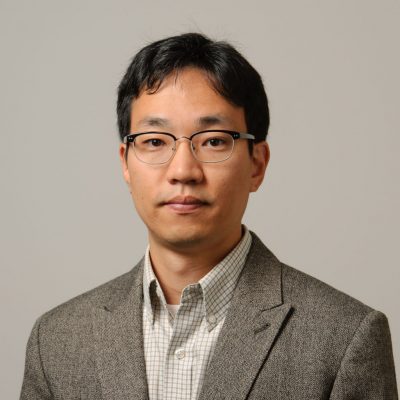 We’re thrilled to announce that Dr. Yongku Cho and his collaborator Dr. Jesse Rinehart from Yale University School of Medicine have been awarded $500,000 at the Tauopathy Challenge Workshop to investigate post-translational modifications in tau protein aggregates. These chemical changes, found in patients with Progressive Supranuclear Palsy (PSP) and Frontotemporal Dementias (FTDs), may increase tau aggregation and toxicity, both of which are critical contributors to these neurodegenerative diseases.
We’re thrilled to announce that Dr. Yongku Cho and his collaborator Dr. Jesse Rinehart from Yale University School of Medicine have been awarded $500,000 at the Tauopathy Challenge Workshop to investigate post-translational modifications in tau protein aggregates. These chemical changes, found in patients with Progressive Supranuclear Palsy (PSP) and Frontotemporal Dementias (FTDs), may increase tau aggregation and toxicity, both of which are critical contributors to these neurodegenerative diseases.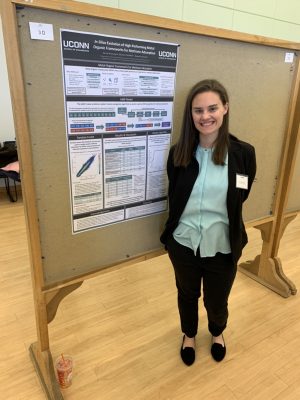 We are thrilled to announce that our graduate student, Nicole Beauregard, has been awarded the NASA Connecticut Space Grant Consortium Graduate Student Fellowship. She will be working on integrating machine learning with evolutionary algorithms for the rapid discovery of high-performing metal-organic frameworks for gas adsorption.
We are thrilled to announce that our graduate student, Nicole Beauregard, has been awarded the NASA Connecticut Space Grant Consortium Graduate Student Fellowship. She will be working on integrating machine learning with evolutionary algorithms for the rapid discovery of high-performing metal-organic frameworks for gas adsorption.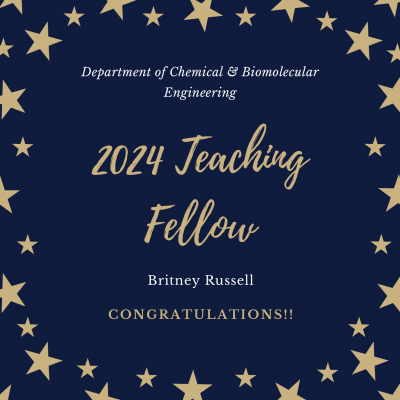 We are proud to announce Britney Russell as the 2024 Teaching Fellow of our Department!
We are proud to announce Britney Russell as the 2024 Teaching Fellow of our Department! 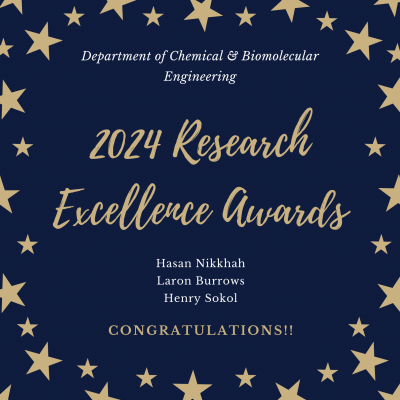 We are proud to announce Hasan Nikkhah, Laron Burrows, and Henry Sokol as the winners of the 2024 Research Excellence Awards! Their pioneering research and unwavering commitment to scientific advancement have earned them this well-deserved recognition.
We are proud to announce Hasan Nikkhah, Laron Burrows, and Henry Sokol as the winners of the 2024 Research Excellence Awards! Their pioneering research and unwavering commitment to scientific advancement have earned them this well-deserved recognition.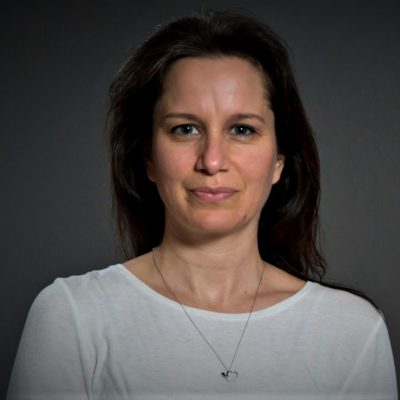 Congratulations to Professor
Congratulations to Professor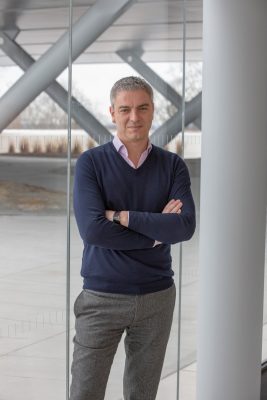 Warmest congratulations to Professor George Bollas on his appointment as the next Associate Dean of Research for the College of Engineering. Dr. Bollas currently serves as the Pratt & Whitney Endowed Chair Professor in Advanced Systems Engineering and the Director of the Pratt & Whitney Institute for Advanced Systems Engineering at UConn.
Warmest congratulations to Professor George Bollas on his appointment as the next Associate Dean of Research for the College of Engineering. Dr. Bollas currently serves as the Pratt & Whitney Endowed Chair Professor in Advanced Systems Engineering and the Director of the Pratt & Whitney Institute for Advanced Systems Engineering at UConn.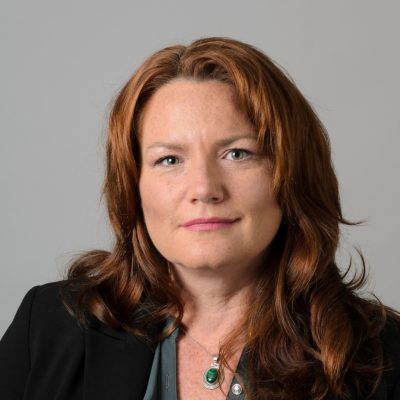 Warmest congratulations to Professor Leslie Shor on her appointment as the next Dean of the Graduate School and Vice Provost for Graduate Education at the University of Connecticut.
Warmest congratulations to Professor Leslie Shor on her appointment as the next Dean of the Graduate School and Vice Provost for Graduate Education at the University of Connecticut.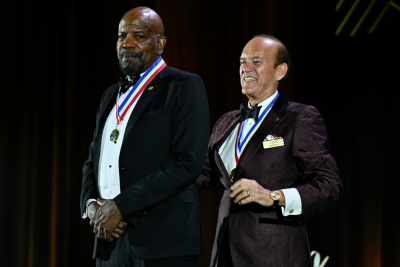 Warmest congratulations to Professor Cato Laurencin on his remarkable achievement of being inducted into the prestigious Plastics Hall of Fame. This honor recognizes his pioneering contributions to the field of regenerative engineering, where he has revolutionized the use of polymeric materials in developing cutting-edge medical devices, biologics, and pharmaceuticals. Prof. Laurencin’s groundbreaking work has transcended traditional boundaries, improving the lives of countless individuals worldwide.
Warmest congratulations to Professor Cato Laurencin on his remarkable achievement of being inducted into the prestigious Plastics Hall of Fame. This honor recognizes his pioneering contributions to the field of regenerative engineering, where he has revolutionized the use of polymeric materials in developing cutting-edge medical devices, biologics, and pharmaceuticals. Prof. Laurencin’s groundbreaking work has transcended traditional boundaries, improving the lives of countless individuals worldwide.